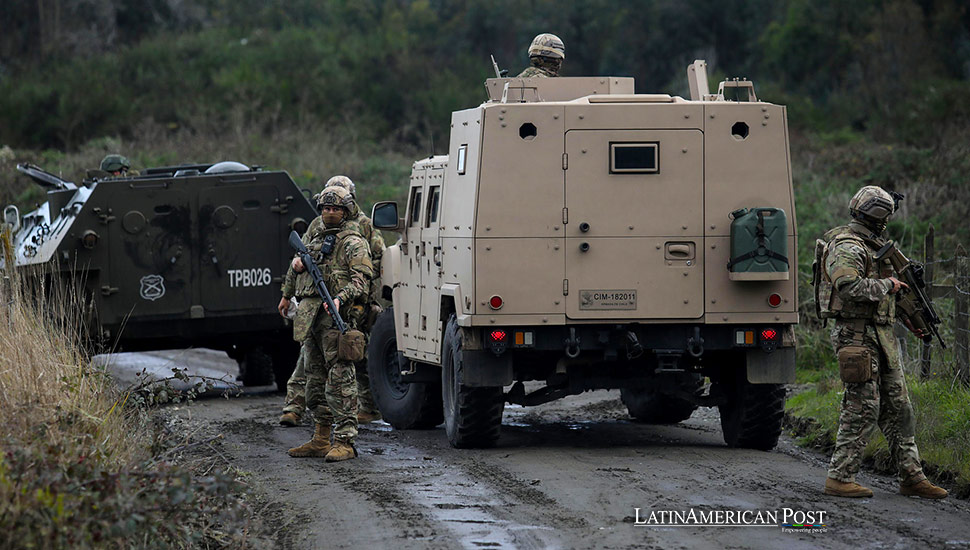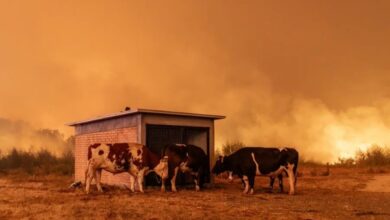Emerging Violence in Chile’s Araucania Signals Deeper Crisis

Two years after the Chilean government declared a state of emergency in La Araucania to curb Mapuche’s low-intensity violence, the region now faces the encroachment of narcotrafficking and organized crime, changing the conflict landscape dramatically.
In the lush, tumultuous region of La Araucania in southern Chile, a new chapter unfolds in a decades-old conflict. Once primarily the stage for clashes over indigenous rights and land disputes involving the Mapuche, the largest indigenous group in Chile, the area is now witnessing an unsettling rise in narcotrafficking and organized crime.
Historically, La Araucania has been a focal point of tension between the Mapuche communities and the Chilean state. The indigenous group has long contested the state’s appropriation of their ancestral lands in the 19th century, which were subsequently sold off to forestry companies. This historical grievance has fueled periodic bouts of violence, primarily targeting property associated with the forestry industry, deemed by many Mapuche as symbols of ongoing dispossession.
However, recent developments suggest a significant shift like this strife. Security experts, speaking to EFE, have raised alarms about the increasing influence of drug cartels and criminal organizations in the region. The murder of three police officers under mysterious circumstances in April, their bodies found riddled with bullets and burned inside their vehicle in the commune of Cañete, Arauco province, has particularly underscored the gravity of the new threat.
Government’s Response to Emerging Threats
In response to the escalating violence, the Chilean government, under President Gabriel Boric, who initially opposed such measures as a congressman, reinstated a state of constitutional exception—a move aimed at restoring order through increased police controls and establishing permanent military bases. This strategy has led to over 450,000 police checks, more than a thousand arrests, and 167 convictions since May 2022, contributing to a reported % decrease in rural violence by 51% compared to 2021.
Despite these efforts, the effectiveness of militarization in combating the increasingly brutal and sophisticated operations of organized crime remains in question. Critics argue that while such measures may temporarily suppress violent incidents, they fail to address the underlying socio-political issues that fuel the conflict.
The Broader Impact of Narcotrafficking
The introduction of narcotrafficking into the already volatile mix of issues in La Araucania complicates the regional security landscape. According to Jorge Araya, a security expert from the University of Santiago, the region’s strategic location, with its proximity to ports, makes it an ideal operational base for drug cartels. This new dimension of crime introduces a higher level of violence and potential corruption that could infiltrate various levels of local government and law enforcement.
According to Salvador Millaleo, a former advisor to the Ministry of the Interior and researcher at VioDemos Institute, persistent issues of land rights, economic development, and cultural recognition remain largely unaddressed. Millaleo emphasizes that although some crimes have decreased, the fundamental causes of violence—such as land restitution, lack of economic planning, and access to natural resources—remain unresolved.
Furthermore, the situation in La Araucania reflects broader national challenges regarding indigenous rights and integration. Chile needs to implement effective intercultural education faster and develop policies that respect and integrate its indigenous populations’ cultural and economic aspirations.
Towards a Comprehensive Solution
Experts like Judith Shönsteiner from the University of Diego Portales advocate a preventive approach beyond direct military intervention. She argues for a systemic strategy that addresses the root causes of the conflict, including economic disparities, social inequities, and the need for dialogue among all stakeholders.
Also read: Security Concerns Halt Chilean Truckers, Impacting National Business
As La Araucania stands at a crossroads, the Chilean government and the Mapuche community face the dual challenge of addressing deep-seated historical grievances while simultaneously countering the rise of organized crime and narcotrafficking. The path forward requires a multifaceted approach that combines security measures with social, economic, and political reforms to ensure long-term peace and stability in the region. The future of La Araucania, rich in culture and history, depends on the ability of all parties to forge a comprehensive and inclusive resolution that honors both the land and its people.





